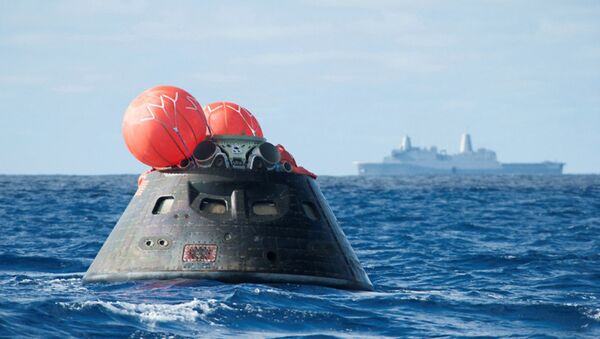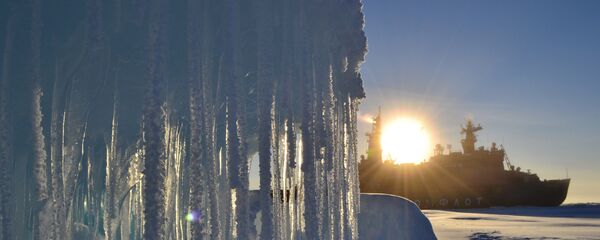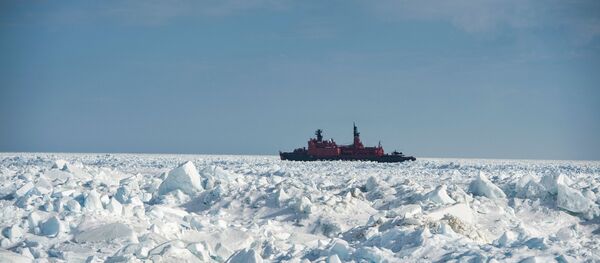In his report, titled 'The US quietly re-writes Arctic Policy', Anderson explained that while the final decisions on the future of America's Arctic policy will be determined by the next administration, its foundation is a brainchild of the outgoing administration.
The new policy has three prongs, the analyst said, and includes environmental protection, a policy to develop hydrocarbon resources in the Arctic region, and the US "re-establish[ing] itself militarily in the region by placing strategic assets in Alaska."
As for the environment and hydrocarbon development, the Obama administration has adopted a sense of policy realism, according to the analyst, with Washington unlikely to permanently ban oil and gas development, whatever environmentalists might say, because natural gas burns comparatively clean, and energy exploration and development is a source of income and a matter of US energy security.

In any case, the fact that Alaska is not a swing stage, and that its political battles do not receive much national coverage, means that the federal government has been able "to make legislative and executive decisions concerning the Arctic without much concern for political blowback."
"The first step," he explained, "is acquiring icebreakers." The Coast Guard presently has only one icebreaker with year-round icebreaking capabilities which is expected to be retired in 2019, along with one other ship capable of doing so during part of the year. No plans exist to build any more, even though contracting to build them would take a decade.

Meanwhile, Anderson stressed that "Russia, by comparison, has 41 polar icebreakers in service."
At the same time, the geostrategic importance of US military presence in the Arctic is difficult to overestimate, with Alaskan air bases "an ideal launching point for [Air Force] missions across the entire northern hemisphere," from Europe to East Asia, "while assets based in the lower 48 [states] require extensive refueling to reach the same operational theaters."
Ultimately, praising the Obama administration's Arctic policy, the analyst suggested that this policy may end up being the "most enduring decision" of the administration's tenure. "While most of the implementation will be up to future administrations, the administration appears to have inconspicuously prepared the United States for continued effective leadership in the Arctic region."
Expert magazine contributor Sergei Manukov has a different view. Analyzing Anderson's piece, Manukov suggested that what the Obama administration is now doing seems more like damage control "for the fact that Washington obviously overlooked the Arctic and allowed for such a gap to form between itself and Russia."
Ultimately, Manukov suggested that President Obama "has been partially rehabilitated with the creation of a new Arctic policy. Washington hopes that the economic and financial power will allow it to eliminate the backlog. However, ultimately, solving this important and difficult problem will be a matter for Donald Trump."
Given the President-elect's serious disagreements with current policy on a broad range of issues, from Europe, to Russia, Iran and Syria, it's difficult to say for certain that the 'foundation' being laid in the Arctic by the Obama White House will not also face drastic changes in the years to come.









